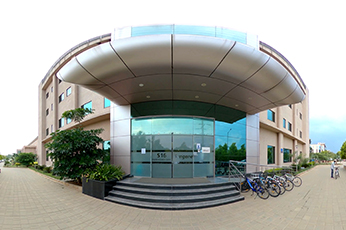Mechanism-driven repurposing and repositioning
Drug repurposing relies on establishing novel drug-target, target-disease or drug-disease associations. These relationships are often complex and require integration of heterogeneous information — chemical, biological, structural and clinical. Syngene combines multiple methods for learning from this diverse data to offer mechanism-of-action (MoA) based drug repurposing:
- Drug centric: New indications for an existing molecule or failed molecule.
- Target centric: New role for a target
- Disease centric: Addressing an unmet medical need
Features
Our diverse computational expertise enables us to integrate multiple data sources and capture effects at many levels of a biological function – molecular to network and phenotypic inferences. This includes the following:
- Integration of heterogeneous data to generate robust mechanism-of-action (MoA) hypotheses
- Combining knowledge, gene signatures, protein networks and targeted mechanisms into a unified decision model
- Making use of deep learning algorithms to extract higher order relationships
Repositioning in Animal Health
We create dossiers by assessing targets for their potential in repurposing drugs for use in animal health. We have experience in assessing human targets/therapeutics for bovine, porcine, feline, and canine diseases.
Repositioning human/animal drugs to animal
The Syngene advantage
- Deep computational capabilities: Deep computational biology, chemistry and data science expertise
- Accelerated proof- of-concept: In silico, in vitro, and in vivo
- Drug discovery expertise: Expertise in conventional drug discovery, PK/PD, dosing improves success rates
- End-to-end solutions: Syngene can offer a complete preclinical/clinical package for your repurposing requirements



